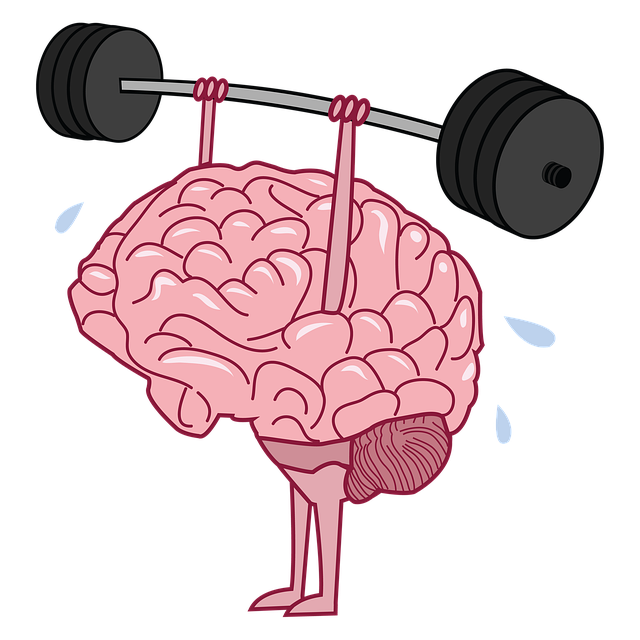Mental health policies are crucial for navigating significant life changes, especially Centennial Major Life Transitions like adolescence to adulthood, parenthood, and retirement. These policies promote tailored therapy, coping skill development, and trauma support services, fostering resilience against mental health challenges. By integrating these approaches, societies can empower individuals, reduce stress, and prioritize mental well-being during transformative periods, creating a more supportive environment.
Mental health policy is a powerful tool in shaping societies’ overall well-being, especially during significant life transitions. This article delves into the intricate world of mental health advocacy, offering a comprehensive analysis of current policies and their impact on accessible therapy options. We explore ‘Centennial Major Life Transitions’ and how policies can provide much-needed support. Through case studies, we highlight successful policy interventions, demonstrating the potential to reform mental healthcare systems and improve access to therapy for those facing these transitions.
- Understanding Mental Health Policy: A Foundation for Advocacy
- The Role of Policy in Addressing Centennial Major Life Transitions
- Uncovering Gaps: Assessing Current Therapy Options
- Effective Advocacy Strategies for Mental Health Reform
- Case Studies: Successful Policy Interventions and Their Impact
Understanding Mental Health Policy: A Foundation for Advocacy

Mental health policy forms the framework for understanding and addressing the complex landscape of individual and collective well-being. At its core, effective mental health policy advocacy begins with comprehending the intricate interplay between various life transitions – from adolescence to adulthood, and the potential impact on mental health. These pivotal moments, often referred to as Centennial Major Life Transitions, can significantly influence an individual’s psychological state. Therapy and support services tailored for these periods are crucial in fostering resilience, especially when individuals navigate challenges like trauma or adopt self-care practices.
Advocacy efforts should also spotlight the importance of developing coping skills, particularly during these formative years. By integrating Trauma Support Services and promoting Self-Care Practices, we can ensure that individuals have the tools necessary to persevere through life’s transitions. This holistic approach not only empowers folks but also paves the way for a more supportive and inclusive society where mental health is prioritized.
The Role of Policy in Addressing Centennial Major Life Transitions

Mental health policies play a pivotal role in addressing the unique challenges associated with centennial major life transitions. These policies provide a framework to support individuals navigating significant changes, such as entering adulthood, parenthood, or retiring. By integrating therapy and emotional healing processes into healthcare systems, policy interventions can mitigate the potential for stress management issues and burnout prevention strategies among those facing these life shifts.
Effective mental health policy design considers the impact of societal transitions on individual well-being, ensuring that access to appropriate therapy is accessible throughout various stages of life. This proactive approach not only acknowledges the emotional demands of major life events but also fosters resilience, enabling people to adapt and thrive during these transformative periods.
Uncovering Gaps: Assessing Current Therapy Options

In the realm of mental health policy analysis, a crucial step involves uncovering gaps within existing support systems, especially when examining therapy options for significant life transitions. The current landscape may present limited resources tailored to addressing unique challenges associated with milestones such as graduation, employment, and parental leave—known as Centennial Major Life Transitions. This gap in specialized therapy underscores the need for targeted interventions that cater to the psychological nuances of these pivotal moments.
A comprehensive review reveals a dearth of integrated approaches combining traditional psychotherapy with innovative strategies like risk assessment tools for mental health professionals. By incorporating techniques focused on positive thinking and empathy-building, therapists can enhance their capabilities to support individuals navigating these transitions. Such an inclusive approach not only ensures more effective care but also fosters resilience, thereby improving overall mental well-being during these potentially stressful periods.
Effective Advocacy Strategies for Mental Health Reform

Mental health advocacy is a powerful tool to drive change and improve access to quality care. When pushing for mental health reform, it’s crucial to employ strategic approaches that resonate with policymakers and the public. One effective method is highlighting the impact of mental health issues on major life transitions, such as graduation, marriage, or retirement. By sharing personal stories and case studies, advocates can illustrate the challenges individuals face and the potential for positive outcomes through effective therapy and support systems. This strategy creates a human connection, fostering empathy and understanding among decision-makers.
Additionally, incorporating evidence-based practices and addressing specific concerns like stress management, cultural sensitivity in mental healthcare practice, and risk management planning for professionals can strengthen advocacy efforts. Presenting research-backed solutions demonstrates a commitment to comprehensive reform, ensuring that policies are informed by expertise and tailored to address diverse populations’ unique needs. This multi-faceted approach maximizes the impact of advocacy work, ultimately leading to systemic changes that benefit individuals navigating Centennial Major Life Transitions through therapy.
Case Studies: Successful Policy Interventions and Their Impact

Successful policy interventions aimed at mental health have had profound impacts, particularly during major life transitions such as adolescence and aging. Case studies from around the globe illustrate how tailored support systems can significantly improve outcomes. For instance, countries that have implemented Mind Over Matter principles into their educational curricula have shown reduced rates of anxiety and depression among teenagers, highlighting the power of early intervention.
These policies often encompass innovative Communication Strategies that foster open dialogue about mental health. For example, peer-to-peer support programs have been effective in breaking down stigma and encouraging help-seeking behaviors. Furthermore, the development of Mental Wellness Coaching Programs has empowered individuals to manage their emotional well-being during challenging life events, including those marked by significant transitions like graduation or retirement. These interventions underscore the importance of holistic policy approaches that address mental health as an integral part of overall wellness.
Mental health policy analysis and advocacy are vital components in ensuring accessible, effective therapy options for navigating the Centennial Major Life Transitions we face. By understanding policy frameworks, identifying gaps in current therapy offerings, and employing strategic advocacy methods, we can drive meaningful mental health reform. The case studies presented highlight successful policy interventions that have significantly impacted well-being, offering a roadmap for future initiatives aimed at enhancing mental health support during these critical life stages.














